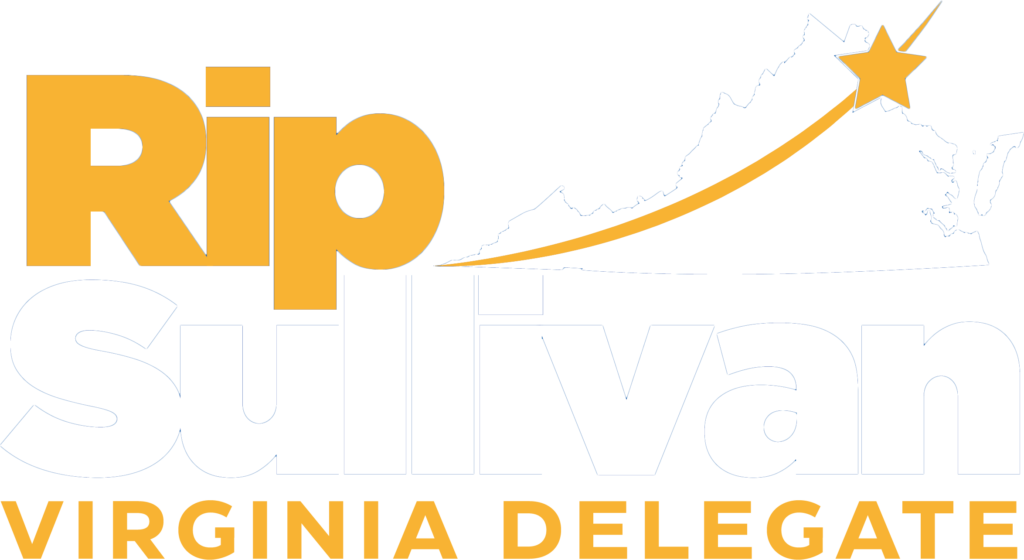Richmond Times-Dispatch Column:
Oh, to have been a fly on the wall.
I would have enjoyed watching Gov. Glenn Youngkin labor over what words to use in his energy plan that wouldn’t enrage the climate deniers he cannot cross as he considers a run for president. The words “clean energy” are in there — they had to be, since they’ve become mainstream. But when he had to say something nice about the historic and widely popular (with voters and businesses) Virginia Clean Economy Act (VCEA), he could bring himself only to write that its goals “appear laudable.”
Talk about damning with faint praise.
At the recent Clean Energy Summit in Richmond, he hailed Virginia’s leadership position on clean energy, but ignored the fact that it was the VCEA which vaulted Virginia into that position.
The governor insists that his plan is “not reducing an emphasis on renewables.” But of course it is. He not only wants to slow the effort down, but he abandons the imperative of carefully reducing and eventually ending the use of fossil fuels to generate electricity in Virginia. He gives up, just as we are taking off.
He euphemistically talks about “re-evaluating” the VCEA in the upcoming legislative session. That’s code for “repeal.” And his proposed reauthorization requirement every five years is terrible policy, injecting the kind of unpredictability and instability that is anathema to long-term business planning and investment.
It is ironic that he would call renewables risky and expensive while trumpeting small modular nuclear reactors (SMRs). Solar and wind projects abound, while commercialized SMRs don’t exist anywhere in the world, because we don’t know how to build or operate them in cost-effective, safe and reliable ways. And for the governor to claim that the VCEA “excludes” everything else, including nuclear, is just flat-out wrong, and meant to purposely mislead. In fact, the VCEA specifically contemplates zero-carbon technologies — including nuclear and hydrogen — being part of our clean energy transition. If they become viable. He needs to read the law.
Should we pursue the governor’s SMR “moonshot?” Even he acknowledges any possible success is at least 10 years away. And if we do, I hope he’ll be honest with Virginians about the challenges and cost, which compare very unfavorably to wind and solar. According to Lazard, Wall Street’s gold-standard, nuclear costs far exceed the plummeting costs of wind and solar. The debacles in South Carolina ($9 billion for a nuclear plant that will never operate) and Georgia (costs soaring from $14 billion to $36 billion) are cautionary tales.
We surely should not abandon one proven path forward while hoping another opens a decade from now.
Wind and solar are exploding in the commonwealth and around the world, and Virginia should continue to lead the way. Since the VCEA passed, solar generation in Virginia has grown nearly fourfold, with almost 4,000 megawatts installed and another 7,000 projected over the next five years. In 2021 alone solar investment in Virginia was nearly $1.5 billion, much of that bolstering the tax bases of rural communities. And the Virginia offshore wind project will be the largest in the country, generating 2.6 gigawatts of electricity, enough to power 660,000 homes, and making Virginia a hub for this fast-emerging industry.
We surely must be thoughtful about siting solar, and preserving farmland and forests. Last session we passed legislation to do just that. And we should pass more bills like my HB396, which enabled urban and suburban localities to do their part by using more of their land and buildings to site solar projects. But should we slow down, let alone reverse course? No.
And we must ensure that Southwest Virginia benefits from our energy transition. The VCEA prioritizes it, and green jobs are now pouring into Southwest Virginia. The Highlands Solar Project, for example, will use 1,200 acres of the former Red Onion Mine, powering 12,500 homes and creating lots of new jobs.
The governor’s plan is woefully short in many other ways. It barely mentions energy efficiency. And it thumbs its nose at the business community, which has made it abundantly clear that Virginia’s best-in-class clean energy plan is a key draw to companies large and small.
And it fundamentally fails to follow the law, which requires his administration to provide some very specific analysis, none of which is in Youngkin’s plan.
Just like the governor’s timid position on electrifying Virginia’s transportation, there is a whiff of denial and defeatism in his energy plan. He talks a good game about innovating and leading. And then he blinks.
Richard C. “Rip” Sullivan Jr., a Democrat, represents Fairfax and Arlington in the Virginia House of Delegates, and was the author and patron of the Virginia Clean Economy Act. Contact him at delrsullivan@house.virginia.gov.

